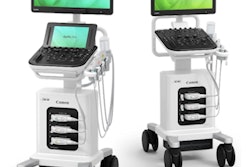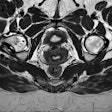
Canon Medical Systems has launched a new CT and x-ray system at ECR 2023.
The x-ray system, Celex, offers an extensive range of advanced digital radiography imaging capabilities, according to the company. The system is designed with a small footprint; minimum installation space is required, and the work area around the patient table is maximized.
The user interface enables intuitive control of the system. Celex features self-explanatory icons on a large touchscreen while buttons can be customized for each department's needs. In addition, the inControl console is designed with four color-coded touch-sensitive joysticks while the detachable tabletop provides optimal space to accommodate patients in wheelchairs or on stretchers.
Celex is also designed with patient and user safety in mind, according to Canon. The patient table is made of carbon fiber, and Celex is made entirely of materials that allow for minimal x-ray absorption.
The grid can be easily removed, and the patient table can be moved so it is out of range of the x-ray beam. Furthermore, advanced software with specialized algorithms and specific programs for pediatric patients can contribute to dose minimization. The algorithms include noise reduction, advanced edge enhancement, and a contrast boost.
In addition, Canon Medical launched its new 80/160-slice CT scanner, the Aquilion Serve. The scanner is designed for use in all routine examinations, including trauma.
Its newly designed 80 cm wide-bore gantry features two touch panels and two built-in cameras that support automated one-touch patient positioning. Furthermore, Instinx, a next-generation workflow solution, combines artificial intelligence-enabled automation to support fast, easy, and safe CT examinations, the company noted.
The Aquilion Serve also introduces 3D Landmark Scan, which delivers the same radiation dose as a traditional dual scanogram. 3D Landmark Scan previews axial slices with the traditional anteroposterior and lateral views. This feature, in conjunction with anatomical landmark detection, can accurately identify the anatomical structures required to perform automatic scan planning. Scan range and field of view can be automatically set to a position that is predefined in the scan protocol to save time, Canon noted.



















